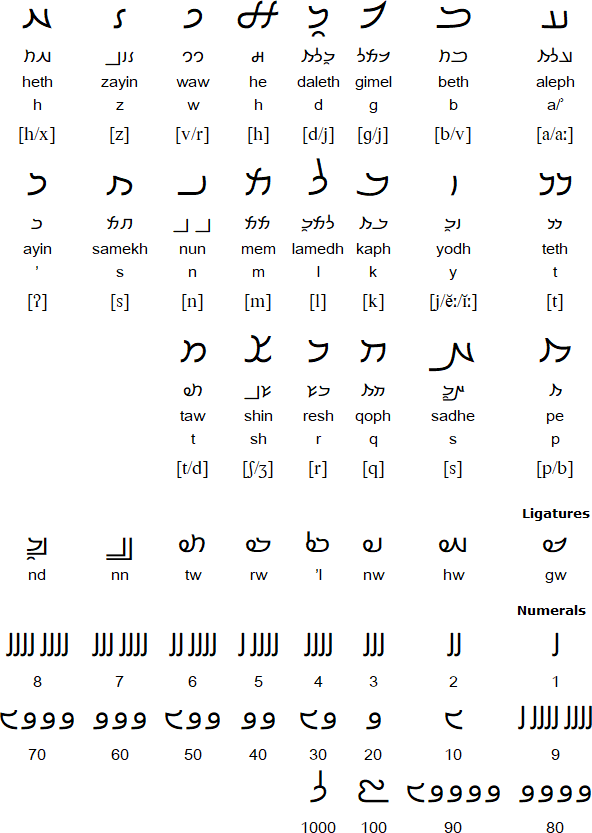The Parthian script developed from the Aramaic script around the 2nd century BC and was used during the Parthian and Sassanian periods of the Persian empire. The latest known inscription dates from 292 AD. It is also known as Inscriptional Parthian, as was mainly used for inscriptions on clay tablets and coins.

Download an alphabet chart for Parthian (Excel)

By Unknown author - Oriental Institute, Public Domain, Link
Information about Parthian
http://en.wikipedia.org/wiki/Parthian_language
https://en.wikipedia.org/wiki/Inscriptional_Parthian
http://www.iranchamber.com/history/articles/parthian_history_language.php
http://www.parthia.com/parthia_language.htm
https://www.unicode.org/L2/L2007/07207r-n3286r-parthian-pahlavi.pdf
Circle of Ancient Iranian Studies at the School of Oriental and Asian Studies (SOAS), University of London: http://www.cais-soas.com
Avestan, Bactrian Baluchi, Bartangi, Dari, Gilaki, Hazaragi, Ishkashimi, Judeo-Persian, Juhuri, Khufi, Kumzari, Kurdish, Luri, Mazandarani, Munji, Ossetian, Ormuri, Oroshor, Persian, Parthian, Pashto, Rushani, Sanglechi, Sarikoli, Shabaki, Shughni, Tajik, Talysh, Tat, Wakhi, Wanetsi, Yaghnobi, Yazghulami, Yidgha, Zazaki
Ancient Berber, Arabic, Aramaic, Chorasmian, Elymaic, Hatran, Hebrew, Manichaean, Nabataean, North Arabian, Pahlavi, Palmyrene, Parthian, Phoenician, Paleo-Hebrew, Proto-Sinaitic / Proto-Canaanite, Psalter, Punic, Sabaean, Samaritan, Sogdian, South Arabian, Syriac, Tifinagh, Ugaritic
Page last modified: 10.06.24
[top]
You can support this site by Buying Me A Coffee, and if you like what you see on this page, you can use the buttons below to share it with people you know.

If you like this site and find it useful, you can support it by making a donation via PayPal or Patreon, or by contributing in other ways. Omniglot is how I make my living.
Note: all links on this site to Amazon.com, Amazon.co.uk
and Amazon.fr
are affiliate links. This means I earn a commission if you click on any of them and buy something. So by clicking on these links you can help to support this site.
[top]